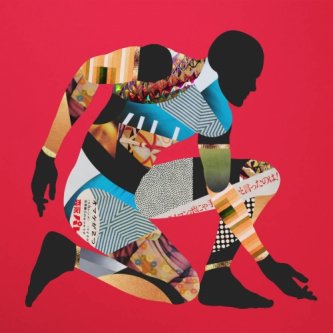Sometimes even the most committed solo artist needs a little help from outside. Puzzling over a new direction for his one-man electronic project Mind Enterprises a few years back, Andrea Tirrone turned to an old friend. Or more precisely, a hard drive given to him by an old friend. “I was looking for something to inspire me,” he says. “So I plugged it in and suddenly there were all these amazing sounds.”
The device in question had been passed on to Andrea by Salvatore Principato, singer with seminal New York post-punks Liquid Liquid. Their paths had crossed in 2011 when Principato produced an EP for Andrea’s previous band Did, themselves an angular, post-punk inspired outfit based in Turin. But when he finally started sifting through the songs on Principato’s disk, the music which caught Andrea’s ear didn’t sound anything like early-80s no wave New York. Instead he found himself hooked on Fever, a vintage garage-funk jam by 70s Kenyan musician Jingo.
“That was the key to start exploring,” he says. “I started listening to a lot of Afro-funk from Nigeria and Ghana, and after that my way of composing changed drastically.” Suddenly, too, he began to see Mind Enterprises as a more dynamic, outward-looking project: “Before my songs were more interior, me talking to myself in a shy way. Today I feel like I can talk to the outside world a bit more.”
Now 29 and having recently finished work on “Idealist”, a debut album which channels both the electronic pulse of Todd Terje and William Onyeabor’s loose-fit West African disco, Andrea admits it’s been quite a journey. Even before the encounter with Principato, he was looking beyond the somewhat insular Italian alternative scene he was part of in Turin. “I left Italy because I was a bit stuck there, I couldn’t find the right way to express myself,” he says. His desire to widen his musical horizons and find a new audience for the electronic experiments he was creating on his laptop have since taken him from northern Italy to London – and his current studio in a garden shed in Clapton.
“It’s a bit damp and cold and has a lot of big spiders!” he laughs. “But it’s great to have a studio that’s not in your bedroom, otherwise it’s easy to get into this horrible habit of never leaving your room. Even going into the garden gives me a different way of working.”
Location, though, only tells part of the story. As its name suggests, Mind Enterprises has always been about Andrea tapping his own imagination and since arriving in London in 2012 he says he’s written hundreds of drafts for songs. The first results of this musical exploration to reach a wider audience was the soulful, off-beat electro of 2013’s My Girl EP. But faced with the challenge of following it up with his debut album early the following year, Andrea admits he “got a bit lost”.
“It took about six months for me to start picturing what the record was,” he says. “Plus I’m kind of a control freak! I need to have control of every single little part of my music from recording to mastering. The downside is that sometimes it can be hard to have a clear judgement of what you’re doing. It takes time to get it all right.”
The pay-off comes on an album which offers an intoxicating mix of shape-shifting rhythm, contemporary production and unashamedly emotional songwriting. Using live instruments rather than just relying on software for sounds, and placing his distinctive falsetto at the heart of the mix, Mind Enterprises offers a distinctively fresh, individual twist on the kind of new-wave electronic funk pioneered by Metronomy and LA Priest, from opener Idealistic’s futuristic Afro-beat to Lover Boy’s loose-limbed funk and the slow-burning house groove of Confusion.
It’s also music which is intended to make people move, even if Andrea insists it’s not directly influenced by his experience of the London club scene. In fact, having wearied of clubland’s excesses (“I prefer musical stimulations rather than chemical ones!”), he’s reconnected with live music and is currently in the process of putting together a band so that he can take his songs out into venues where audiences might normally come to listen rather than dance.
“I’ve kind of changed my approach to club music,” he admits. “One thing I was thinking while recording the album was that it’s dance music, but on my terms. This is what I would want to hear if I was going out to a gig. Songs, yes. But songs you can dance to. That’s the ultimate goal of this record.”


COMMENTI